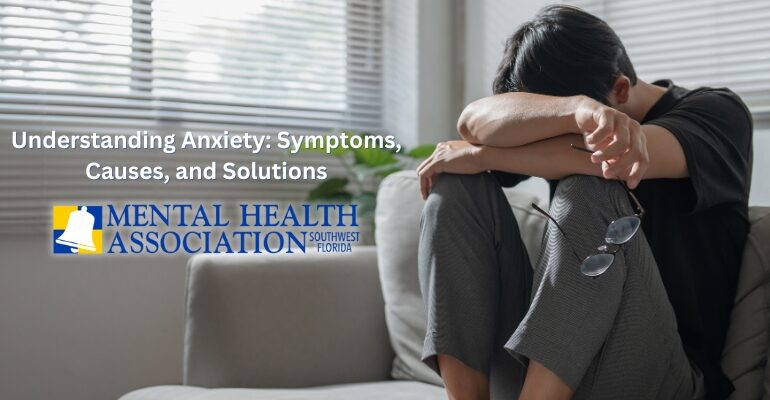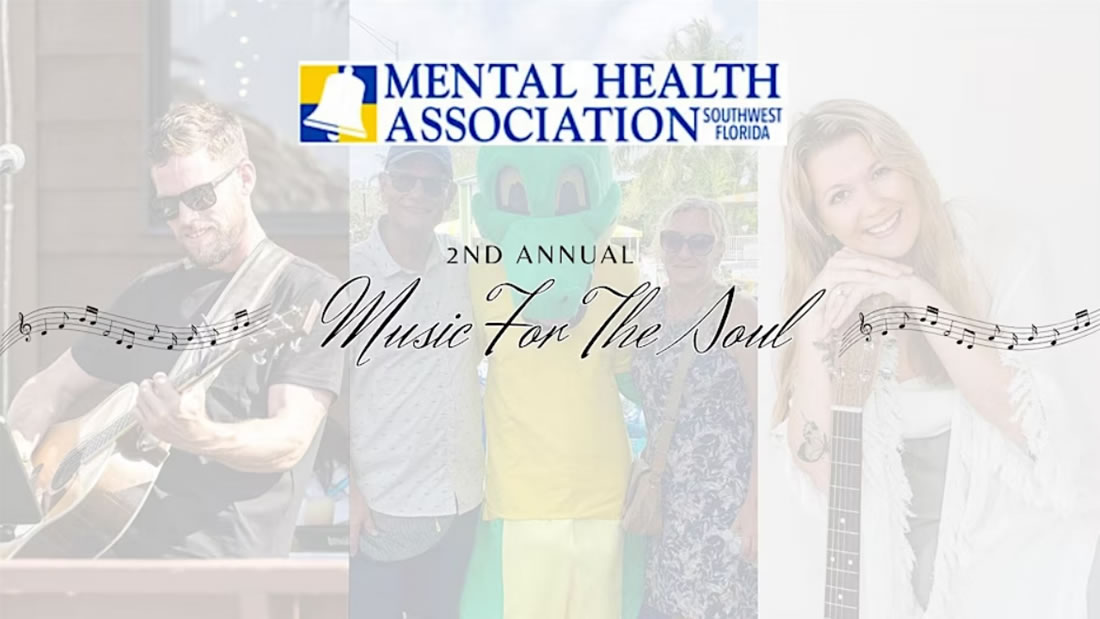
Raising our voice for those unheard…
-
Need Help? Call Us: (239) 261-5405
-
Raising our voice for those unheard…
Need Help? Call Us: (239) 261-5405

Anxiety is a common mental health condition that affects millions of people worldwide. At MHASWFL (Mental Health Awareness of SW Florida), we are committed to shedding light on mental health issues, providing valuable information, and supporting those who need help. In this blog post, we’ll explore the symptoms, causes, and solutions for anxiety, along with the top coping strategies to manage it effectively.
Anxiety is more than just feeling stressed or worried. It’s a persistent condition characterized by excessive fear or worry about everyday situations. While occasional anxiety is a normal part of life, disorders often involve repeated episodes of sudden feelings of intense anxiety and fear that reach a peak within minutes (panic attacks).
Recognizing the symptoms of anxiety is the first step toward managing it. Common symptoms include:
– Physical Symptoms: Increased heart rate, sweating, trembling, shortness of breath, and gastrointestinal issues.
– Emotional Symptoms: Feelings of dread, irritability, restlessness, and being on edge.
– Cognitive Symptoms: Difficulty concentrating, racing thoughts, and constant worrying.
– Behavioral Symptoms: Avoidance of situations that trigger anxiety, compulsive behaviors, and changes in sleep patterns.
Understanding the causes of anxiety can help in finding effective solutions. Some common factors include:
– Genetics: A family history of anxiety or other mental health disorders.
– Brain Chemistry: Imbalances in neurotransmitters or hormones can play a significant role.
– Environmental Factors: Stressful or traumatic events, such as the loss of a loved one or a major life change.
– Medical Conditions: Certain health conditions or medications can contribute to anxiety.
– Substance Abuse: Misuse of drugs or alcohol can lead to increased anxiety levels.
While professional help is essential for managing anxiety, there are several coping strategies that individuals can practice to alleviate symptoms:
Practicing mindfulness and meditation can help ground your thoughts and reduce the intensity of anxiety. Techniques like deep breathing, progressive muscle relaxation, and guided imagery can be particularly effective.
Engaging in regular physical activity releases endorphins, which act as natural stress relievers. Activities such as walking, running, yoga, or even dancing can significantly improve your mood and reduce anxiety.
A balanced diet rich in whole foods, lean proteins, and plenty of fruits and vegetables can have a positive impact on your mental health. Reducing caffeine and sugar intake can also help manage anxiety symptoms.
Ensuring you get enough sleep is crucial for mental well-being. Establishing a regular sleep routine and creating a restful environment can aid in better sleep quality.
Talking to friends, family members, or joining support groups can provide a sense of belonging and relief from anxiety. Sharing your concerns with others can help you feel understood and less isolated.
Cognitive-behavioral therapy (CBT) and other therapeutic approaches can help identify and change negative thought patterns associated with anxiety. Professional therapists can offer personalized coping strategies and support.
In some cases, medication prescribed by a healthcare provider can be an effective part of an anxiety treatment plan. Always consult with a medical professional before starting or stopping any medication.
If you or someone you know is struggling with anxiety, it’s important to seek professional help. MHASWFL offers various resources and support services to assist individuals in managing their mental health. Remember, you are not alone.
Visit our Therapist Member Directory and find a local therapist near you that can offer help.
Understanding anxiety and implementing effective coping strategies can help manage symptoms and improve overall quality of life. At MHASWFL, we are dedicated to providing support and raising awareness about mental health issues.
